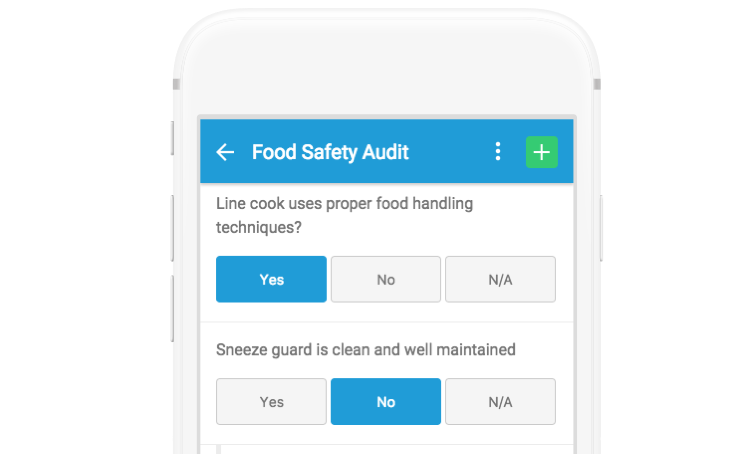Scheduling training time, verifying the effectiveness of training, and organizing refresher training are the three biggest food safety training challenges worldwide, according to the fifth annual Global Food Safety Training Survey. If it sounds familiar to your organization, there’s good reason. These were the top challenges identified by food safety professionals at 1,400 companies across 20 food industry sectors. It’s proof that these problems aren’t unique to any one brand. But how a brand chooses to respond to the challenges can give them a unique competitive advantage.
Sponsored by Alchemy Systems, the world’s largest food industry training company, and several other organizations, the survey shows a strong management commitment to food safety, with 74% of respondents believing they have a clear vision for improving food safety, 55% responding that their company is a leader in food safety, and 83% believing they are able to provide the food safety training needed to drive behaviors. However, good vibes and well wishes for food safety are low-hanging fruit when compared to real strategy.
According to Alchemy’s Chief Strategy Officer, Raj Shah, companies have “execution gaps” that still require attention. “For example, 67% of respondents indicated that they still have employees not consistently following their food safety procedures,” he said.
As Alchemy states, “Leading companies are tackling these safety training challenges with best practices, including shorter training sessions, automating learning records, and providing tablets and training tools to supervisors who can train and coach employees directly on the facility floor.”
In other words, senior managers at top companies are using mobile technology to make training more approachable and more quantifiable. Better yet, you don’t have to be the size of a “leading company” to tap into these resources. Foodservice retailers of various sizes can improve accountability by empowering their employees with mobile technology.
Zenput, a mobile software solution, is the easiest way for foodservice retailers to implement, track, and enforce food safety best practices. Here’s how it addresses these top 3 food safety training concerns:


Scheduling training and organizing refresher training
Food safety is too important to rely on outdated methods of communication. Zenput lets you instantly share food safety audits and daily checklists with your employees at your stores. Distribute your training modules digitally and allow store or regional managers to check off their progress. Through cloud-based technology, an edited form is automatically updated across the network, which makes refresher training easier and more approachable. You’ve hired your team for a reason. They’re your eyes and ears in the field, but also you expect them to meet clearly defined benchmarks. Give managers enough time to implement changes, while also overseeing that they’re meeting important deadlines. Zenput’s dashboard allows senior managers to track progress as stores complete training. It also makes it easier to uncover weaknesses that require intervention and/or additional training before they become widespread safety issues.Verifying the effectiveness of training
It comes down to establishing a thorough food safety audit. Check out our post The 7 Principles of Conducting a Food Safety Audit or schedule a demo of our Food Safety and HACCP Checklist Form. The checklist can go beyond simple “yes” and “no” answers by requesting a photo for verification, for example. The photos are securely transmitted via Zenput, so you don’t have to worry about sensitive materials getting leaked. Brands would be better served if managers saw food safety training time as more of an investment and less of a drain on their staff and resources. After food safety challenges in 2016, Chipotle made a concerted effort to train its employees on updated food safety procedure by closing its stores for part of a day. A sizeable cost, but a worthy investment for a company that takes the safety of its customers seriously. Properly communicating and implementing a clearly defined strategy will help avert a food safety crisis and protect your brand’s reputation in the future. That alone is worth the time and investment.Subscribe to our blog
You are now subscribed!


